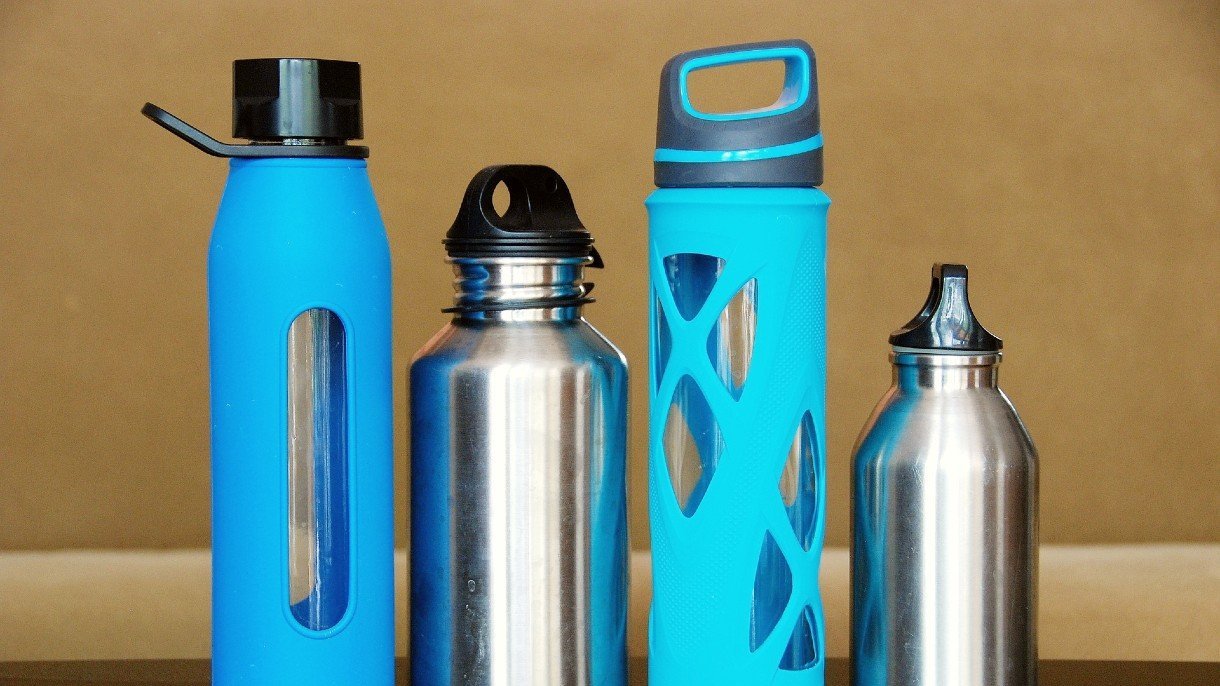How Long Do Reusable Water Bottles Last?

The whole point of buying a reusable water bottle is getting something that will last you a long time, something that you won’t have to replace frequently. And for the most part, reusable bottles deliver on this promise. They are convenient, affordable, and help you reduce your contribution to plastic waste.
But how long do they really last? How many years or months of safe use do you even get? If these are the questions that often plague you, you have come to the right place. We have the answers you seek.
So how long do water bottles last?
The lifespan of your water bottle is highly dependent on what type it is. Popular reusable water bottle types include:
Plastic bottles
These reusable bottles are great for everyday use. They are strong and can withstand falls and scratches. It’s no wonder that they are so popular, especially among those who have children. Plastic reusable bottles are light, affordable, and can be cleaned in the dishwasher; that’s why many people have at least one of these bottles in their kitchen.
Moreover, they are available in a variety of colors/designs and are easy to customize. However, special care needs to be taken to avoid bottles that have Bisphenol-A, a harmful chemical found in many chemicals.
Also, these bottles need to be taken care of properly so that they last long. Otherwise, their color may fade, they may start to smell, or they may accumulate bacteria and make you sick.
To avoid this you should:
- Wash after every use, especially if you’re an athlete.
- Use a dishwasher or warm soapy water to clean.
- When washing by hand, use a brush or an old toothbrush.
- Remember to clean your bottle’s cap or lid.
- Let your bottle dry out after washing.
- Don’t microwave your bottle.
- Don’t put your bottle in the freezer; this can cause cracking.
- Avoid dropping your bottle all the time.
- Once a week, sanitize the bottle with a dilute bleach solution after washing it. For every gallon of water, use 4 teaspoons of bleach.
- Clean with white vinegar to deal with a buildup.
- Clean with baking soda to deal with any odors.
- Don’t expose it to direct sunlight.
Glass bottles
Not only do glass bottles look stylish, but they also come in a variety of sizes. More importantly, they don’t leach any harmful chemicals and leave your water tasting fresher than ever.
But while these dishwasher-safe bottles can easily be customized, they make it way too easy for someone to scratch away your logo/design if they want to.
Also, they are heavy, easy to break, and heat up easily under warm temperatures. This is the major reason they are not great for kids, they are just not safe for an over-active little human. And as if that isn’t enough trouble, they aren’t very easy on your pocket either.
However, they do make up for it in durability.
All things considered, glass bottles are perfect for those who don’t have kids and don’t travel around very often.
Aluminum bottles
Popular among outdoorsy people, aluminum bottles are both light and high-capacity. They can keep you hydrated for long periods without weighing you down. Also, they are affordable, safe, and customizable.
However, since they are reactive to acidic liquids, they usually have an inner layer of epoxy – a substance that can contain BPA. As such, they can be unsafe in the long run.
It also doesn’t help that this epoxy lining makes them harder to recycle. And if you think things couldn’t get any worse, get this – aluminum bottles are not always dishwasher safe. So you’ll have to keep on top of the cleaning to avoid any strange tastes.
Once you add on the facts that these bottles heat up in warm temperatures and can even dent when dropped, it becomes obvious that they are not the best option.
Some of the things you can do to ensure that your bottle can last for just as long include:
- Don’t put it in the dishwasher, microwave, or freezer.
- Don’t use harsh abrasives when washing.
- Wash with soapy water and a soft sponge.
Stainless steel bottles
Everything is not just sunshine and rainbows though, they do have their downsides.
For one, users have complained that these bottles sometimes leave a metallic aftertaste in your water. Secondly, they are pretty heavy, something that may pose a problem to those who are constantly on the go. They are also not dishwasher-safe and can heat up in the summer.
But do you know what sucks? The fact that they are significantly more expensive than other bottles yet can still dent when dropped. Ultimately, they are at their best when they are well insulated and have an efficient filter installed within them.
Choose according to your situation
Instead of choosing a reusable water bottle based on how long you think it is going to last, make a choice depending on what kind of lifestyle you live. While someone who stays at home a lot could benefit from a glass bottle, someone who is always on the move would do better with an aluminum one. Ultimately, it is up to you to weigh the pros and cons according to your needs.
